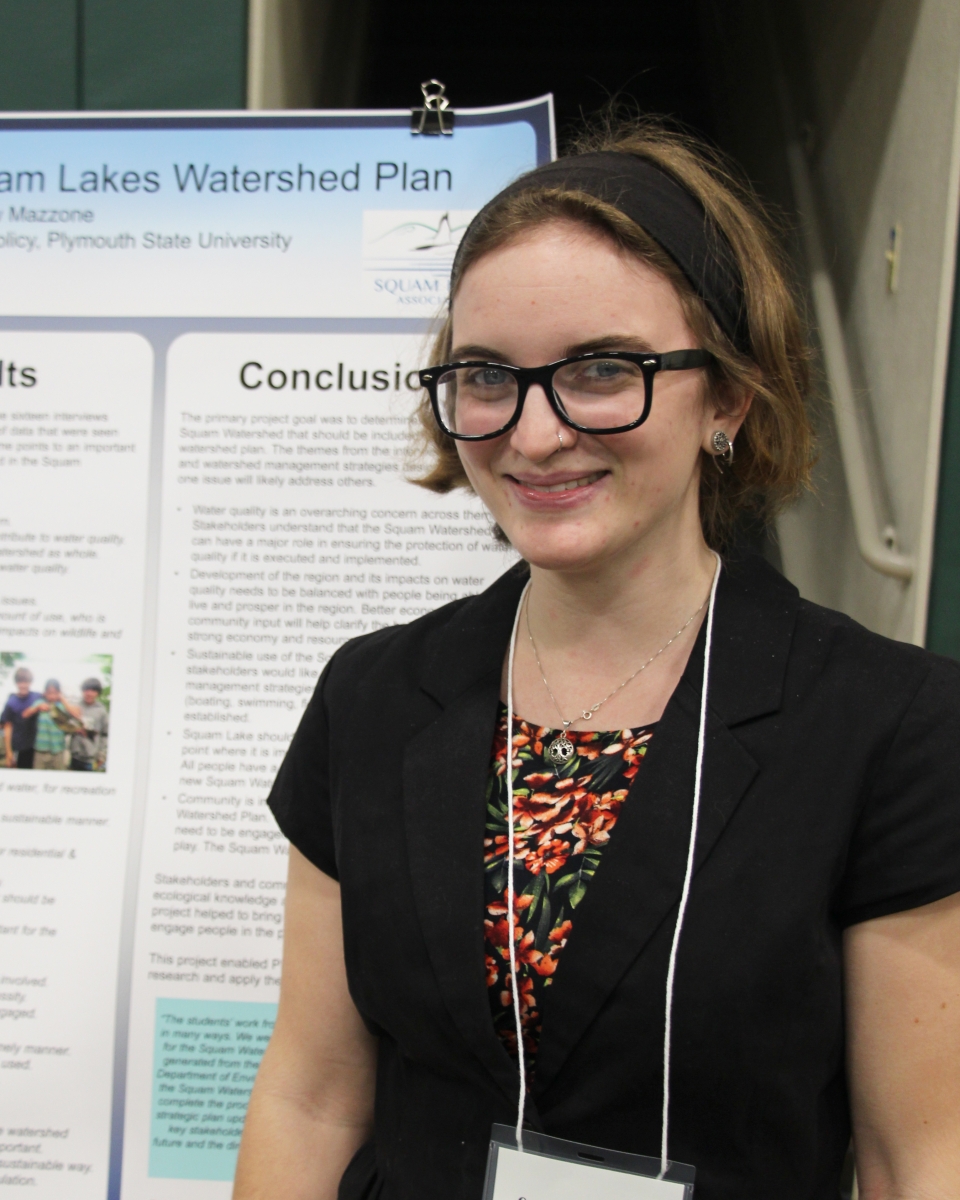Carrie Greenough
EPSCoR Role: Master's student, Plymouth State University Center for the Environment
Current Position: Planning Analyst, New Hampshire Department of Environmental Services Drinking Water and Ground Water Bureau

Carolyn “Carrie” Greenough’s passion for the environment goes all the way back to middle school, when she decided that everyone should enjoy the outdoors as much as she had growing up. So it comes as no surprise that her work would eventually blend social and environmental science.
After completing her undergraduate degree in environmental science at the University of Connecticut and working for a Connecticut environmental consulting agency for almost five years, Carrie chose Plymouth State University to pursue her Master’s in environmental policy.
She began working under the direction of Dr. Shannon Rogers, then an assistant professor of ecological economics at PSU’s Center for the Environment. “I came into the program with very little social science know-how, and Shannon really helped me grow as a social scientist and become the scientist I am now,” Carrie says.
As part of the NH EPSCoR Ecosystems & Society project, which explored the relationships between ecosystem services, land use, and public perceptions, Carrie approached her research from the angle of viewsheds. A “viewshed” refers to someone’s whole visual field at a particular location, such as a home or road, and is often discussed in terms of figuring out where to place new structures that may have a visual impact on the landscape.

Carrie wanted to find out how key stakeholders in the Lakes and White Mountains regions of New Hampshire value their scenic views when considering the impact of large-scale energy projects, such as wind farms. To do this, she interviewed more than 25 people from a range of backgrounds to find out how they felt about potential energy projects affecting viewsheds in New Hampshire.
She found areas of consensus and disagreement around this controversial topic. “We learned that people do place a large amount of value on the scenic beauty of the region, not only from an aesthetic perspective, but also in thinking about economic, environmental, and social values as well,” she says. “Because of this extensive value, state and local policies should incorporate viewshed management when proposing potential alterations.”
In a post-interview survey, Carrie used visual aids to determine how people felt about different alterations to the views in their area. She showed them four different images: a natural setting, then the same scene with the successive additions of wind farm, a power line, and a power plant, and asked them to rank the scenes based only on visual appearance, and then on potential cumulative effects, such as decreased electricity bills. She found that while people preferred natural landscapes over any altered landscape, especially one altered by a power plant, the cumulative impacts of alteration played a large role in how people responded to the images. “It isn’t just the visual impact that makes these projects desirable or undesirable.”
Overall, finding the balance between increasing energy needs and preserving the tourism economy in New Hampshire can be tough, but Carrie was able to make some specific recommendations based on her research. “Community members do recognize the need for energy – especially renewable energy – and are able to identify places that they believe to be vulnerable and places that would work for development without too much impact on tourism,” she says. “This information needs to be passed on to decision-makers and included in the decision process.”
In 2016, Carrie and fellow PSU student Laura Getts were the first Environmental Science & Policy students to be awarded scholarships from Plan NH, which honors outstanding New Hampshire students who are committed to understanding the impacts of the built environment on local communities. “PlanNH typically provides scholarships to design and architecture students, but with Carrie and Laura’s applications, they realized that environmental science and policy were very helpful perspectives for understanding sustainable design and planning,” says Carrie’s advisor, Dr. Shannon Rogers, now a nature-based economic development specialist at University of New Hampshire Cooperative Extension. The additional support from PlanNH allowed Carrie to continue her work for another year.
Carrie now has a position as a planning analyst for the New Hampshire Department of Environmental Services as part of the Drinking Water and Ground Water Bureau, where she assists with database conversions and Safe Drinking Water Act (SDWA) compliance.
“My work on the NH EPSCoR project really helped me realize my desire to go into public service,” Carrie says. “Not only that, but I also came to realize the need for the public’s involvement in research. I came out of the project with a strong desire to work with communities to make sure that knowledge is shared in both directions.”
-- Rita Belair
